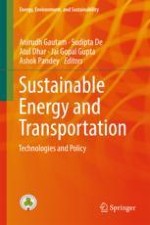2018 | OriginalPaper | Buchkapitel
A Narrative Analysis of State-Level Renewable Energy Policies in India
verfasst von : Shyamasree Dasgupta, Pooja Sankhyayan
Erschienen in: Sustainable Energy and Transportation
Verlag: Springer Singapore
Aktivieren Sie unsere intelligente Suche, um passende Fachinhalte oder Patente zu finden.
Wählen Sie Textabschnitte aus um mit Künstlicher Intelligenz passenden Patente zu finden. powered by
Markieren Sie Textabschnitte, um KI-gestützt weitere passende Inhalte zu finden. powered by
